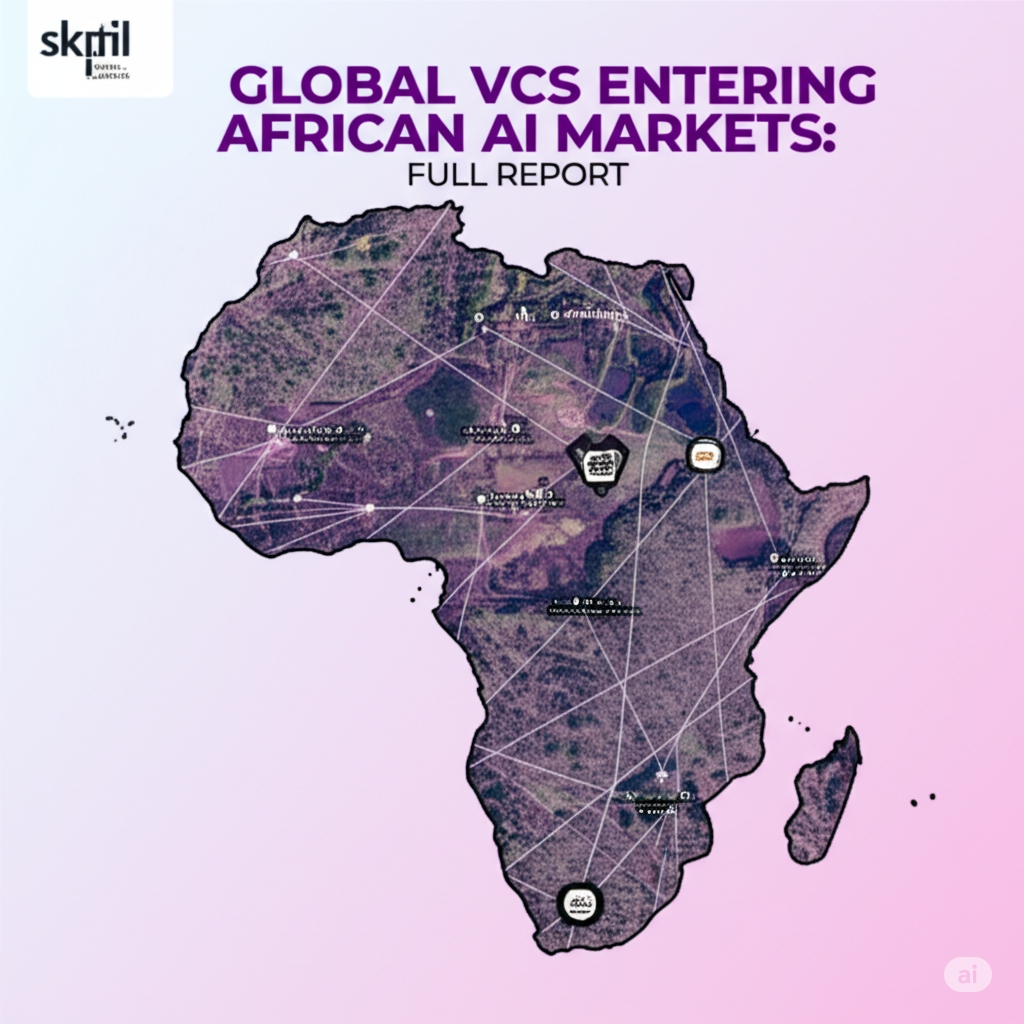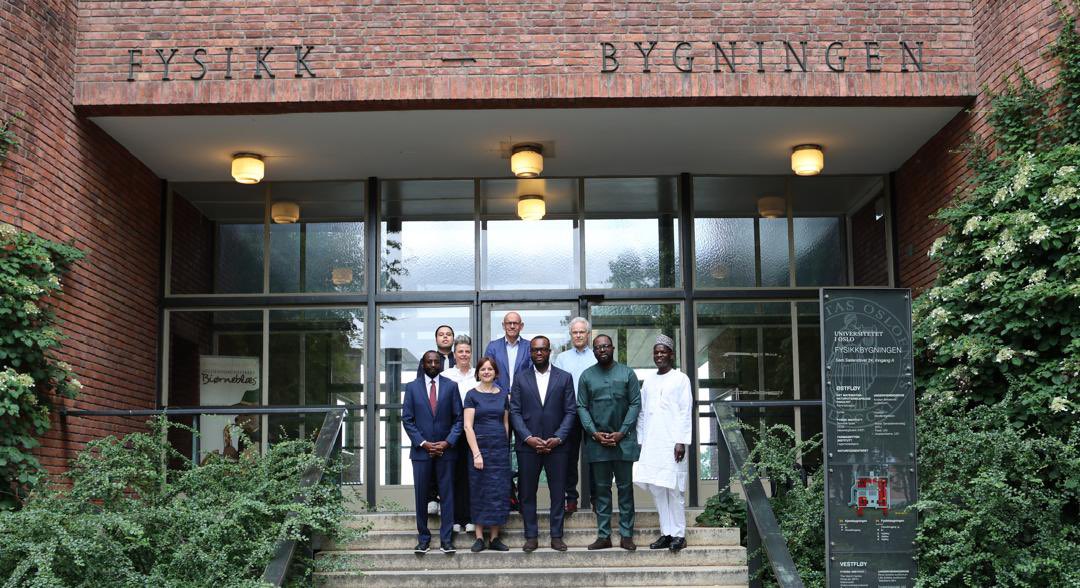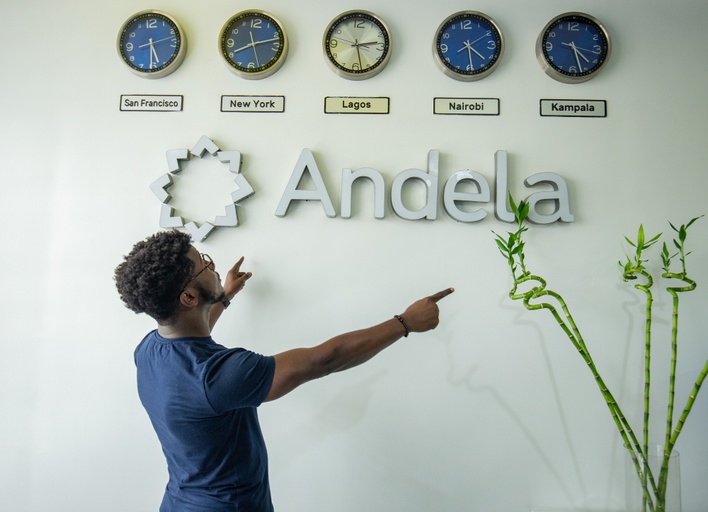Overview
Africa’s AI startup ecosystem is experiencing a surge in interest from both local and global venture capital (VC) players. While the continent still attracts less than 1% of global AI investment, the landscape is evolving rapidly, with international VCs and tech giants increasingly eyeing opportunities in sectors like agriculture, healthcare, and fintech.
Current Investment Landscape
- Funding Volume: Between 2022 and 2023, African AI-enabled startups raised $641 million across 103 VC deals, signaling growing investor confidence. However, this is a fraction of the $50 billion raised globally by AI startups in 2023.
- Deal Size and Stages: Most African AI startups are in early stages, with seed rounds typically starting at $500,000 and Series A rounds reaching $5–10 million. The majority of deals remain small compared to global standards, but the trend is upward.
Key Global and Regional VC Players
- Global VCs: Major international firms such as Sequoia Capital and Andreessen Horowitz are showing increased interest in African AI, attracted by the continent’s untapped markets and unique challenges1.
- Leading African and Africa-Focused VCs:
- Partech Africa
- TLcom Capital
- Knife Capital
- Future Africa
- 4Di Capital
- Acasia Ventures
- Launch Africa
- Top Investors by Number of AI Investments in Africa (as of May 2025): InvestorNumber of AI Investments54 Collective8LoftyInc Capital6Future Africa5Blockchain Founders Fund4Launch Africa4CV VC4Oui Capital4……
- Corporate and Strategic Partnerships: Tech giants like Google, Microsoft, and IBM are investing in African AI through research centers, accelerators, and grants, often in partnership with local startups and innovation hubs.
Notable Recent Deals
- Lengo AI (Senegal): In October 2023, Acasia Ventures led a pre-seed round for Lengo AI, alongside Ventures Platform, P1 Ventures, Launch Africa, and others. The funding aims to expand Lengo’s AI-driven retail intelligence platform across Africa.
- SunCulture (Kenya) and Yoco (South Africa): Both have attracted significant VC funding for their AI-driven solutions in agtech and fintech, respectively.
Drivers and Opportunities
- Untapped Markets: Africa’s large youth population and unique challenges (such as fragmented retail and underdeveloped infrastructure) create opportunities for AI-driven solutions that leapfrog legacy systems.
- Sector Focus: AI investment is concentrated in agriculture, healthcare, and financial services, where technology can address pressing needs and inefficiencies.
- Government and Grant Support: Initiatives like the African Development Bank’s AI for Africa Challenge and government-backed programs in Rwanda and South Africa provide non-dilutive funding and infrastructure support.
Challenges
- Funding Gap: Despite recent growth, Africa’s AI startups still receive less than 1% of global AI VC funding, and most remain in early-stage development.
- Infrastructure and Data: Limited access to quality data and robust cloud infrastructure hampers AI development and scalability.
- Regulatory Uncertainty: Few African countries have comprehensive AI strategies, creating uncertainty for investors and startups.
- Diversity and Inclusion: Female-led AI startups face significant barriers, receiving only 2% of VC funding in Africa.
Outlook
- Growth Projections: The AI readiness index for African countries is expected to rise by 77% over the next five years, with a projected 62% growth in investment.
- Increasing Global Attention: As global VCs and tech giants continue to explore Africa’s AI potential, the funding landscape is expected to become more competitive and diversified.
- Ecosystem Development: Events like the Africa AI Summit and growing diaspora investment are connecting founders with global funders and expertise.
“Startups incorporating artificial intelligence in their business models have also piqued the interest of investors in Africa. While not at the depth and breadth seen in more mature global tech ecosystems, the beginnings of investor confidence in the continent’s AI capabilities are now apparent.”
Conclusion
Global VCs are increasingly entering African AI markets, driven by the continent’s potential for leapfrogging traditional industries and solving unique local challenges. While the funding gap remains significant, the momentum is building, with more deals, larger rounds, and a growing ecosystem of local and international investors. The next few years are likely to see accelerated growth, provided that infrastructure, regulatory, and talent challenges are addressed.




